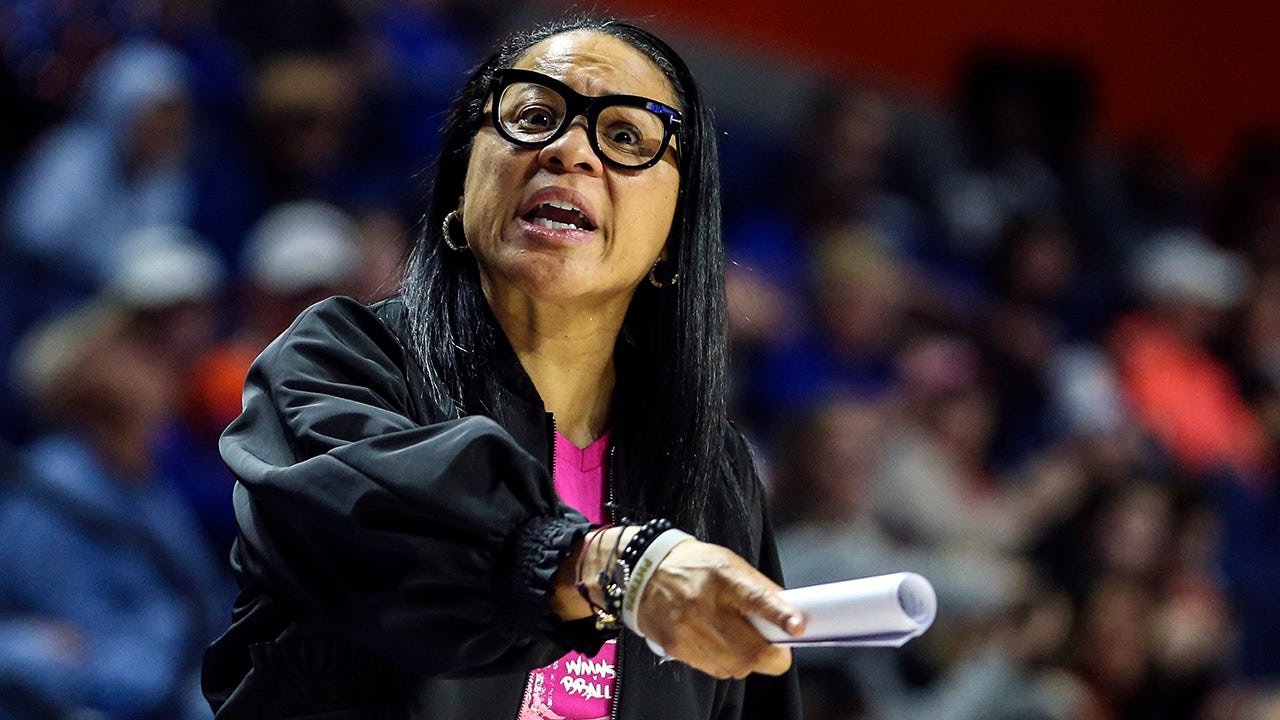It certainly was a big day for Dawn Staley. South Carolina’s national championship coach thought it was just as important for women’s basketball and gender equity.
Staley and the school announced a new, seven-year contract that will pay her $2.9 million this season and grow to $3.5 million in the final season. She also believes the $22.4 million deal should make an impact on her sport and in the equality of what men and women’s coaches and athletes receive from their schools.
“Who knew? Who knew this would take place during my tenure at South Carolina,” she said Friday.
The school’s Board of Trustees approved the deal worth $22.4 million Friday to keep the national championship coach with the Gamecocks through the 2027-28 season.
CLICK HERE FOR MORE SPORTS COVERAGE ON FOXNEWS.COM
The school said in a statement the new deal makes Staley the highest-paid Black coach in women’s basketball and one of the highest-paid coaches in the sport.
Interim University President Harris Pastides acknowledged it was difficult to know with absolute certainty where Staley ranks among her peers.
“I hope she is No. 1,” he said. “She taught us how to break the glass ceiling for women’s basketball and women’s coaches right here at South Carolina.”
Staley’s salary is the highest in the Southeastern Conference, surpassing newly hired LSU coach Kim Mulkey, who will make $2.5 million in her first year with the Tigers.
Staley was set to make $2.1 million this season under her old contract.
She’ll receive a base salary of $1 million a year over the life of the deal with her guaranteed outside compensation starting at $1.9 million this season and growing by $100,000 each subsequent year.
Staley can also earn up to $680,000 in incentive bonuses. The school would owe Staley $3 million if it terminated her without cause this season, an amount that falls to $250,000 by the end of the deal.
“The money is staggering,” she said. “It really wasn’t about the money, but it takes the money for this recognition to be eye-opening.”
Staley would pay the university $5 million if she left on her own this season. That amount falls to $2 million by the contract’s end on April 15, 2028.
Staley thanked school leaders for what she called a ground-breaking moment in the Palmetto State. “For a long time, South Carolina has not always been on the popular end of history,” she said. “But I stand here before you to say this was a transformational decision that was made.”
Staley built South Carolina’s program to championship level over 13 years said athletic director Ray Tanner, who won back-to-back College World Series titles as Gamecocks baseball coach in 2010-11.
“The ability to keep Coach Staley at the University of South Carolina is great news for all Gamecocks,” he sadi.
Staley arrived at South Carolina in the 2008-09 season after coaching at Temple and built a program t hat won the national title in 2017.
The Gamecocks have won five SEC regular-season titles and six league tournament crowns. They reached the Final Four at the NCAA Tournament this past spring before falling to Stanford in the national semifinals.
In the offseason, Staley led the United States’ women’s basketball team to a gold medal at the Tokyo Olympics.
She also met with the Portland Trail Blazers about their job opening this past spring.
And the Gamecocks are expected to have another strong season, adding the No. 1-ranked recruiting class to the team featuring all-SEC players Aliyah Boston and Zia Cooke.
Staley was among the loudest voices at the NCAA Tournament when it came to light the women did not receive equal resources at their San Antonio bubble site as men’s teams did at their in Indianapolis.
“Contract negotiations are challenging, but this one was especially important as I knew it could be a benchmark, an example for other universities to invest in their women’s basketball programs, too,” Staley said. “Our game continues to grow and the time is ripe to make a big step forward, but only if universities foster that growth by committing resources that are equitable to those given to their men’s programs.”
Pastides hoped that Staley, 51, would end her career at South Carolina.
“I don’t know where my career will end,” Staley said, ‘But I want this to be my last stop.”
